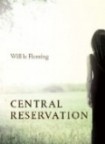The youth of today
Gangs of youths maraud the streets, looting as it takes their fancy. People demand explanations. Luckily the Home Office has commissioned a report into the origins of such behaviour, and it has reached some sober and judicious conclusions.
First and foremost we have the break-up of the family unit. ‘The absence of… fathers’ removes one source of discipline for young people. And the ‘increased employment’ of mothers doesn’t help. Economic and other circumstances are hard, and this has led to a shortage both of police response, in immediate terms, and more widely of support workers for young people. The report notes the ‘absence of social workers from boys’ clubs’ and other community organisations.
Another cause, the report notes, is a spirit of ‘lawless adventure’ among young people. Tendencies that would once have been thought ‘reprehensible’ are now widespread. Young people seem to feel a ‘legitimate excuse’ to carry on in a way their parents would deplore.
And one of the sources of this spirit is of course the media. Violent and lawless movies, for example, in which the flouting of the basic principles of a civilised society is made to seem ‘adventurous and romantic’.
Good old Home Office: it might not be able to stop outbreaks of mass violence, but it will darned well analyse the reasons after the fact. Except, of course, that we are talking an entirely different fact. The report was written in 1916.
What prompts me to recall this worthy document, and its criticism among other things of the ‘ill-advised cinema shows’ corrupting the minds of the youth, is not some cynical disregard for what other people find momentous. I live in London, and have found the last few days as momentous as anyone. I’ve been speechless at the inhumanity, greed and violence, and desperately sorry for the many struggling shopkeepers and local business owners who have suffered such cruel blows at a time when, I’m sure, few were feeling robust as it was.
No, what makes me think of this are the media analysts who get wheeled out at such times. Blustering and insistent, sweating under the studio lights and the pressure of having their moment of glory, they trot out their pet explanations and theories. It’s the government. It’s the economy. It’s the family. It’s any one of a dozen convenient contemporary explanations.
Watching this stuff is like eating too much fast food. It slips down all right at the time, but you start to feel sick before you’ve even finished.
So: what is to be done? I guess the important thing is to engage with what, not why. Follow what’s happening and mute the pundits. Get involved with the clean-up and with the community.
Then, when the dust settles and explanations are required, maybe turn somewhere else for them. Now I am the last person to get on a high horse and declaim the significance of ‘art’. Culture’s great. I love culture. But those who wave culture in front of the noses of the economically desperate and savagely deprived: that’s too rich for my blood.
And yet having been glued to the offerings of BBC 24 for a while now, and having emerged nauseous and unsatisfied, I can’t help but think that I learned more about adolescent anger, violence, greed and self-obsession from books than I did from the formulaic confrontations of the Today programme.
I’m not saying that if we sat young people down and read them Kes, Lord of the Flies, The Wasp Factory and Catcher in the Rye they’d open their eyes and say: oh right. Wow. I get it now. I’m not going out nicking trainers from JD Sports. I’m going to go to the library instead and get into Proust.
However, I am maybe saying that we get the kind of media we ask for, and if we asked for the news, pure and simple, and then thought maybe more widely and less ephemerally about what it told us, the news would start giving us fewer ‘expert analysts’ and allow us more room to consider motive and causation on the basis of our experience.
Anyway. Just a thought. I really sat down to write this on the basis of the much-quoted remark by a Waterstone’s employee, which I dearly hope is genuine. “We’ll stay open,” he’s reported as saying. “If they steal some books they might learn something.”
This blog will be published weekly or thereabouts. Explore the links above for more about Will le Fleming and his writing.

 Will le Fleming is a novelist. His debut, Central Reservation, is published by Xelsion and
Will le Fleming is a novelist. His debut, Central Reservation, is published by Xelsion and 


Interesting – as a historian myself, it’s always striking how often cycles repeat themselves. Of course, in contextual terms , I’m sure you’re aware of events going in 1916. I’d be very intrigued if any of the rioters fathers’ being in military service was the reason for their absence in 2011. I agree that even from the relative security of being across the pond, watching streamed News via the internet, it’s rather depressing seeing the same rentaquotes from whichever side of the debate be wheeled out to offer the same tired explanations – either too little money being spent or a cultural vacuum. As you say, perhaps we need to start thinking for ourselves and on the basis of our own experiences rather than via secondhand recycling of, in many cases, self-appointed ‘expert’ opinions.
IMHO, a more pertinent question is about the inevitability of counter-move by society/state. And it ain’t looking pretty by any historical parallel that comes to my mind. In fact I struggle to find even a single counterexample of what is going to follow.